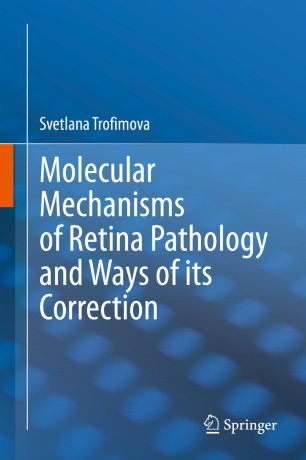

Most ebook files are in PDF format, so you can easily read them using various software such as Foxit Reader or directly on the Google Chrome browser.
Some ebook files are released by publishers in other formats such as .awz, .mobi, .epub, .fb2, etc. You may need to install specific software to read these formats on mobile/PC, such as Calibre.
Please read the tutorial at this link: https://ebookbell.com/faq
We offer FREE conversion to the popular formats you request; however, this may take some time. Therefore, right after payment, please email us, and we will try to provide the service as quickly as possible.
For some exceptional file formats or broken links (if any), please refrain from opening any disputes. Instead, email us first, and we will try to assist within a maximum of 6 hours.
EbookBell Team

4.1
100 reviewsThis book discusses the pathology of the retina, and reviews current research on the use of cell replacement therapy and short peptides to restore functional activity in retinal neurons. As the book describes, pathologies of the retina, including age-related macular degeneration, diabetic retinopathy, and retinitis pigmentosa, present a long-standing challenge in the practice of clinical ophthalmology. Modern treatment for these conditions, which lead to irreversible blindness, includes laser exposure, surgical intervention, and drugs. These treatments aim to reduce the risk of new complications in the eye; pathogenetic therapy of degenerative diseases of the retina is practically absent in current ophthalmic practice.
The first section of the book reviews the molecular mechanisms of age-related macular degeneration, diabetic retinopathy, and retinitis pigmentosa, and reports on methods of treatment. The second section presents the results of recent experimental studies of the effects of short peptides on pluripotent embryonic cells; on proliferative activity in retinal cells and pigment epithelium; on expression of markers of differentiation or retinal neurons and pigment epithelium; and on the course of hereditary retinal pigmentation in Campbell rats. The third section offers results of clinical studies on the effectiveness of short peptides in patients with macular degeneration, and in patients with retinitis pigmentosa.
The author concludes that the regular use of peptides in the treatment of degenerative diseases of the retina can slow the progression of the pathological process and preserve the patient’s vision for some 10-15 years. In addition, in 80 percent of patients, it is possible to increase visual function by increasing visual acuity, improving the boundaries of the visual field and the fundus.